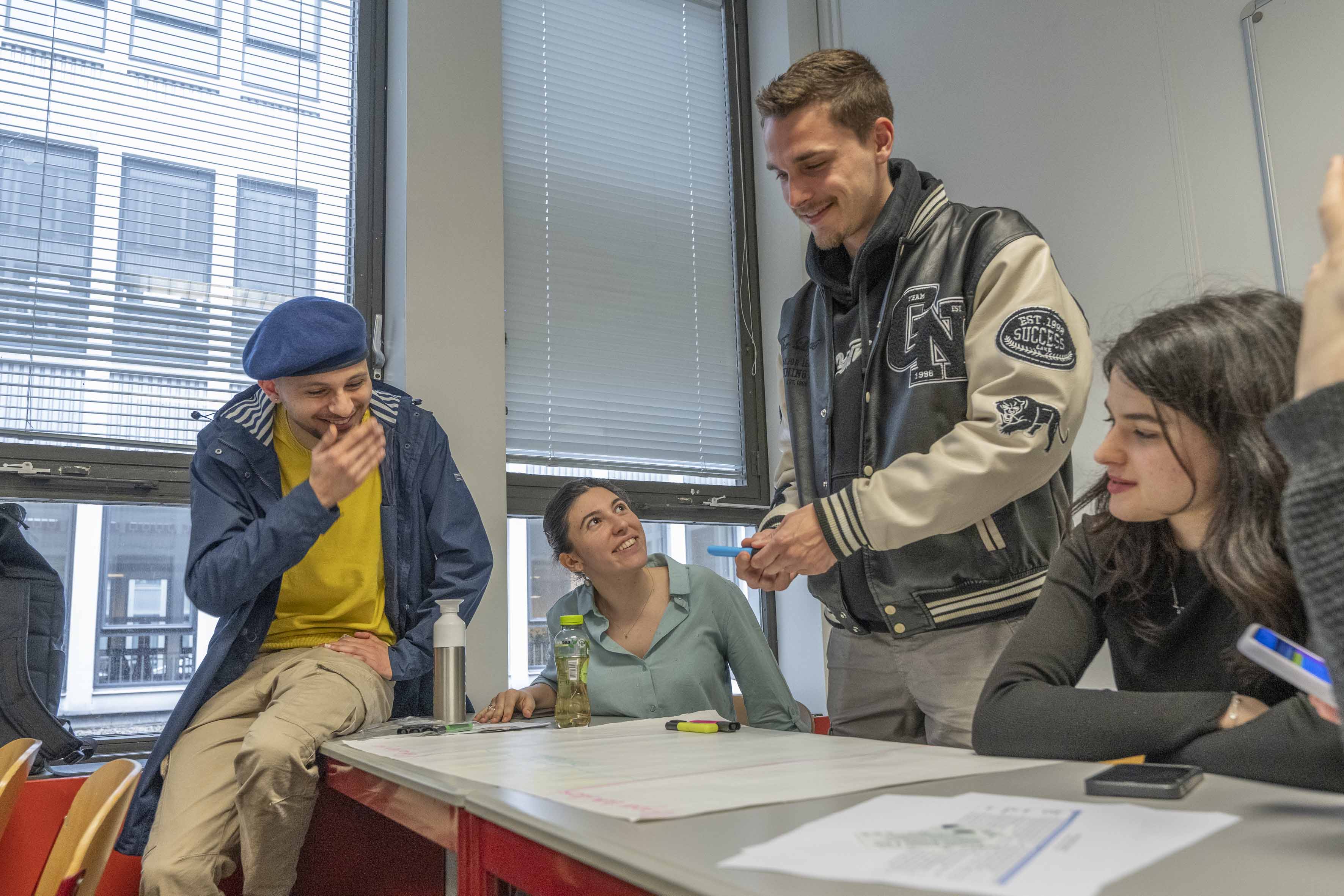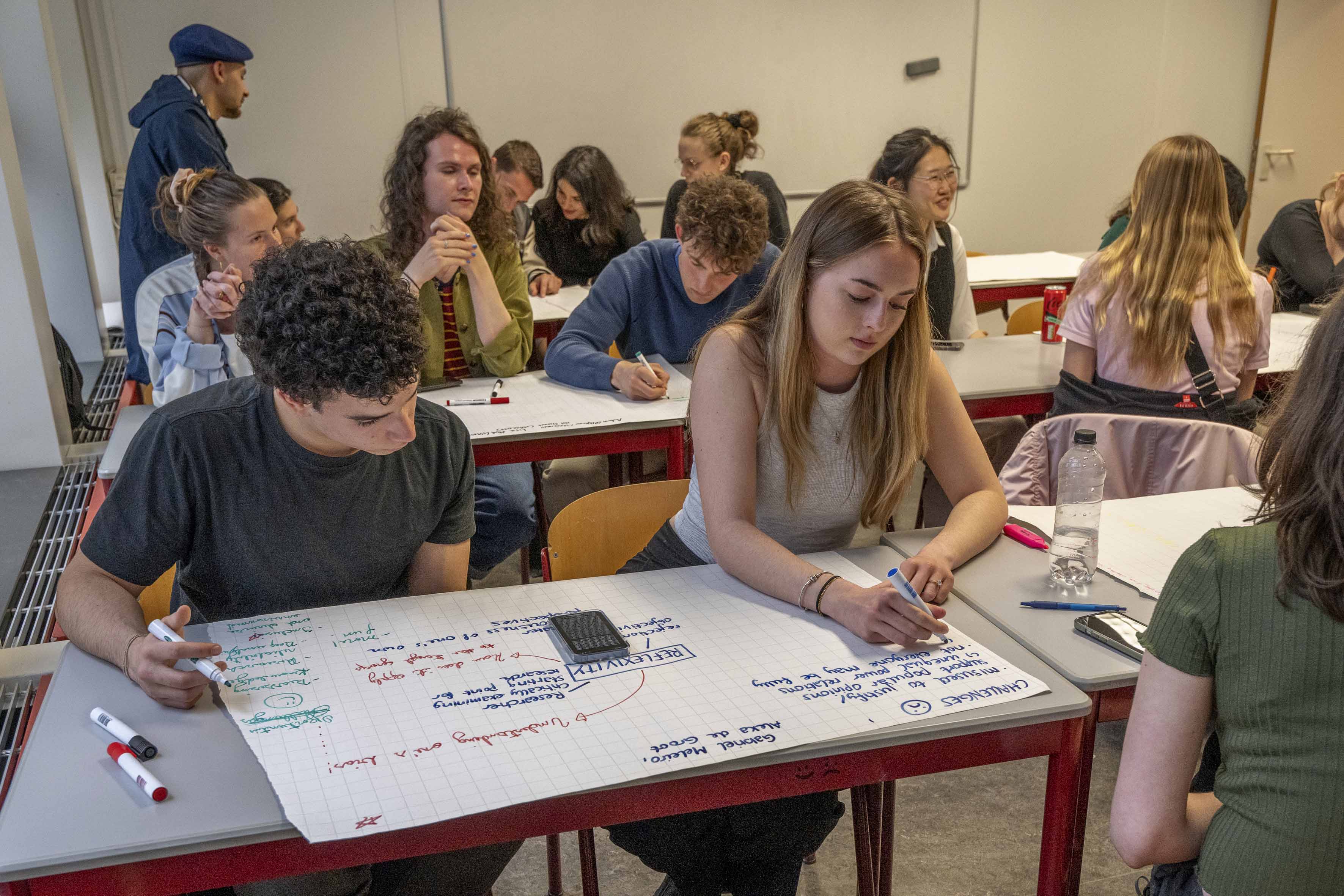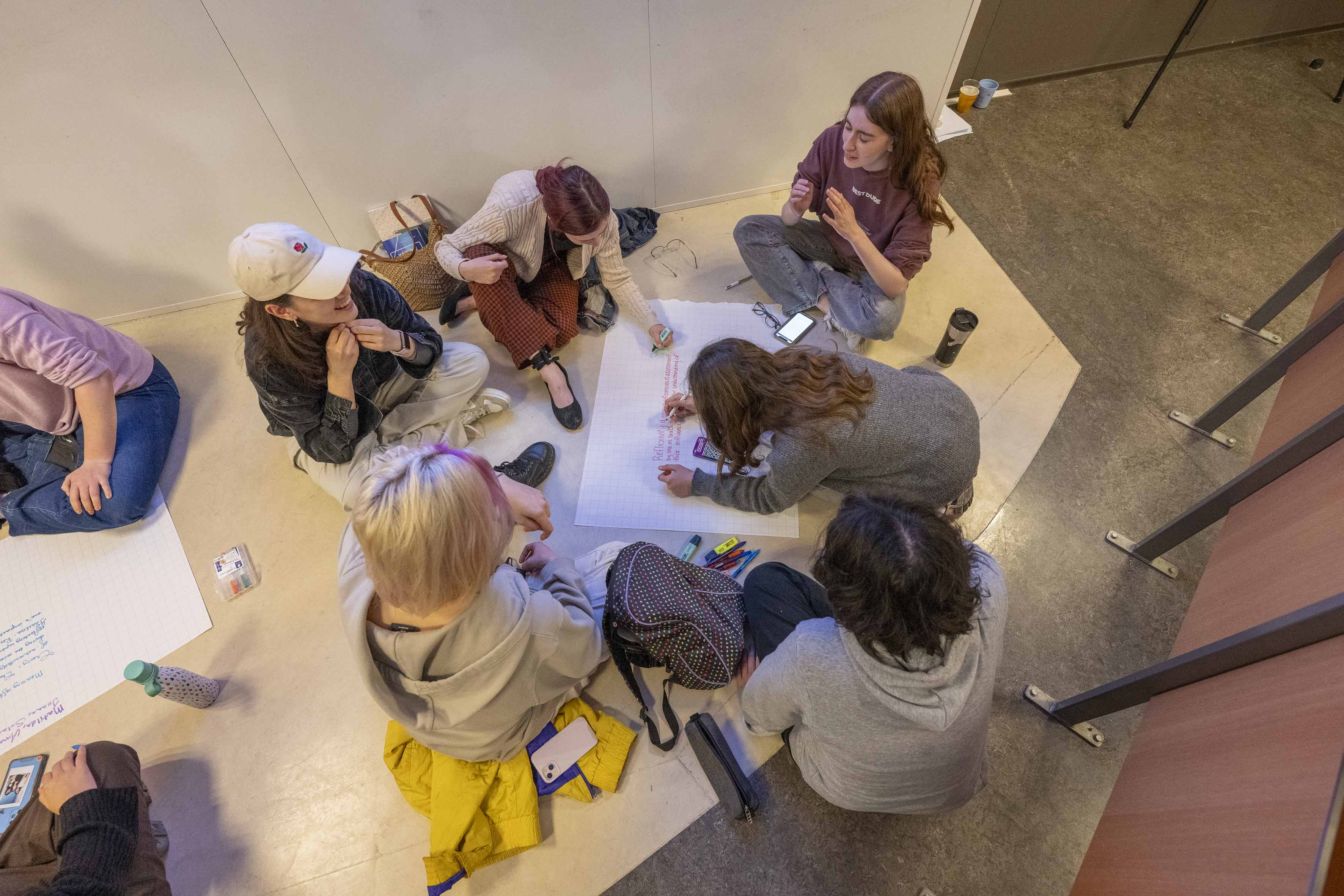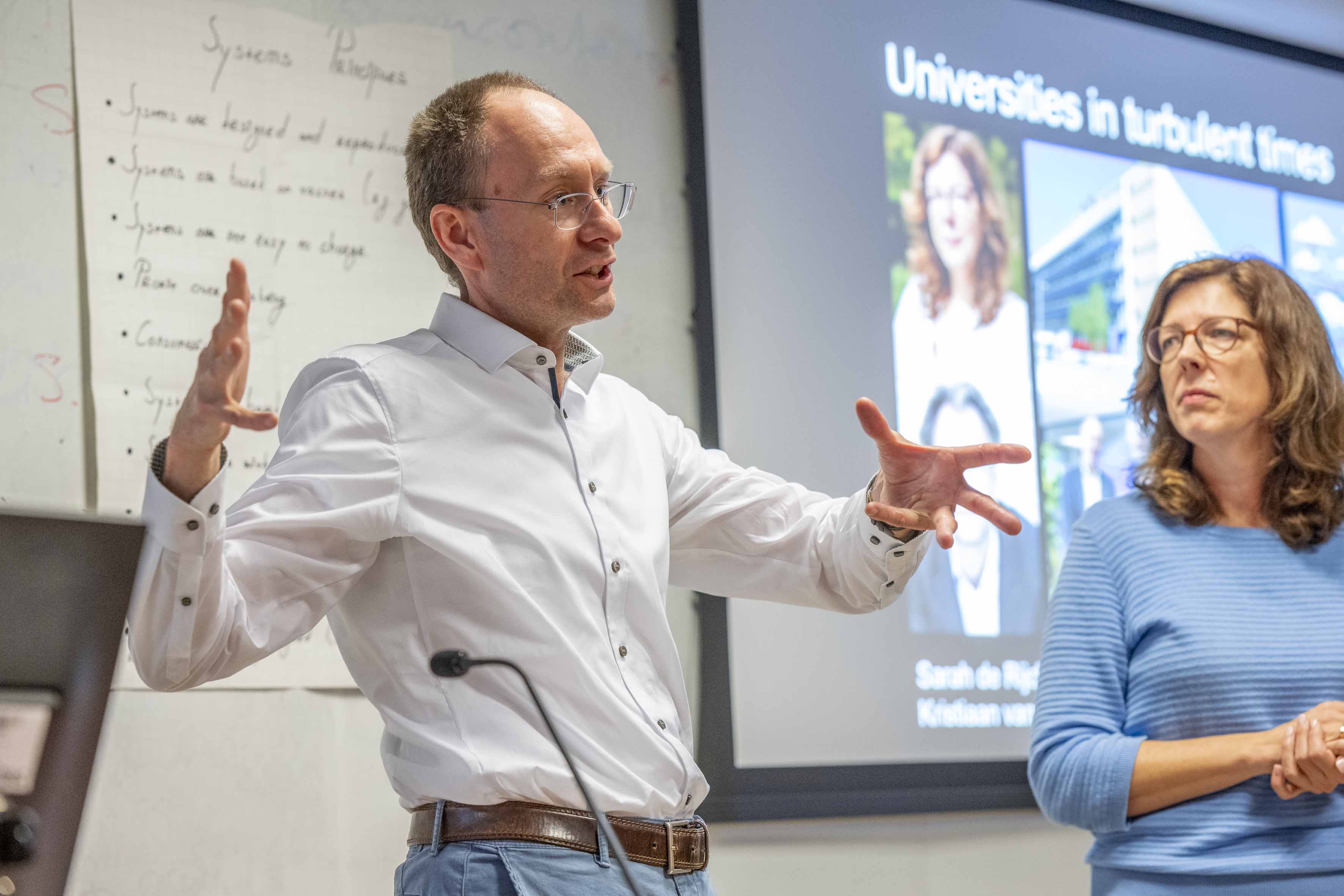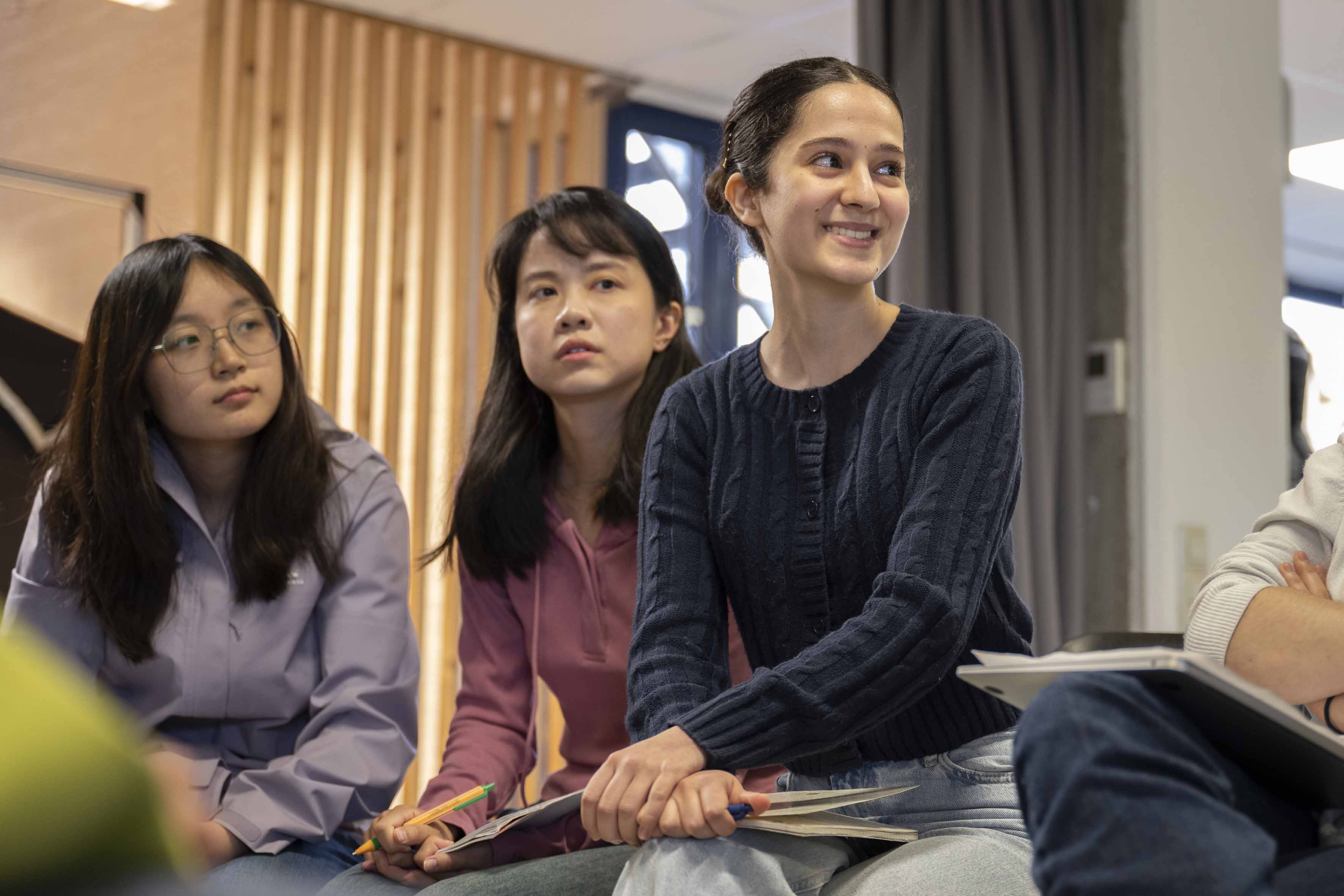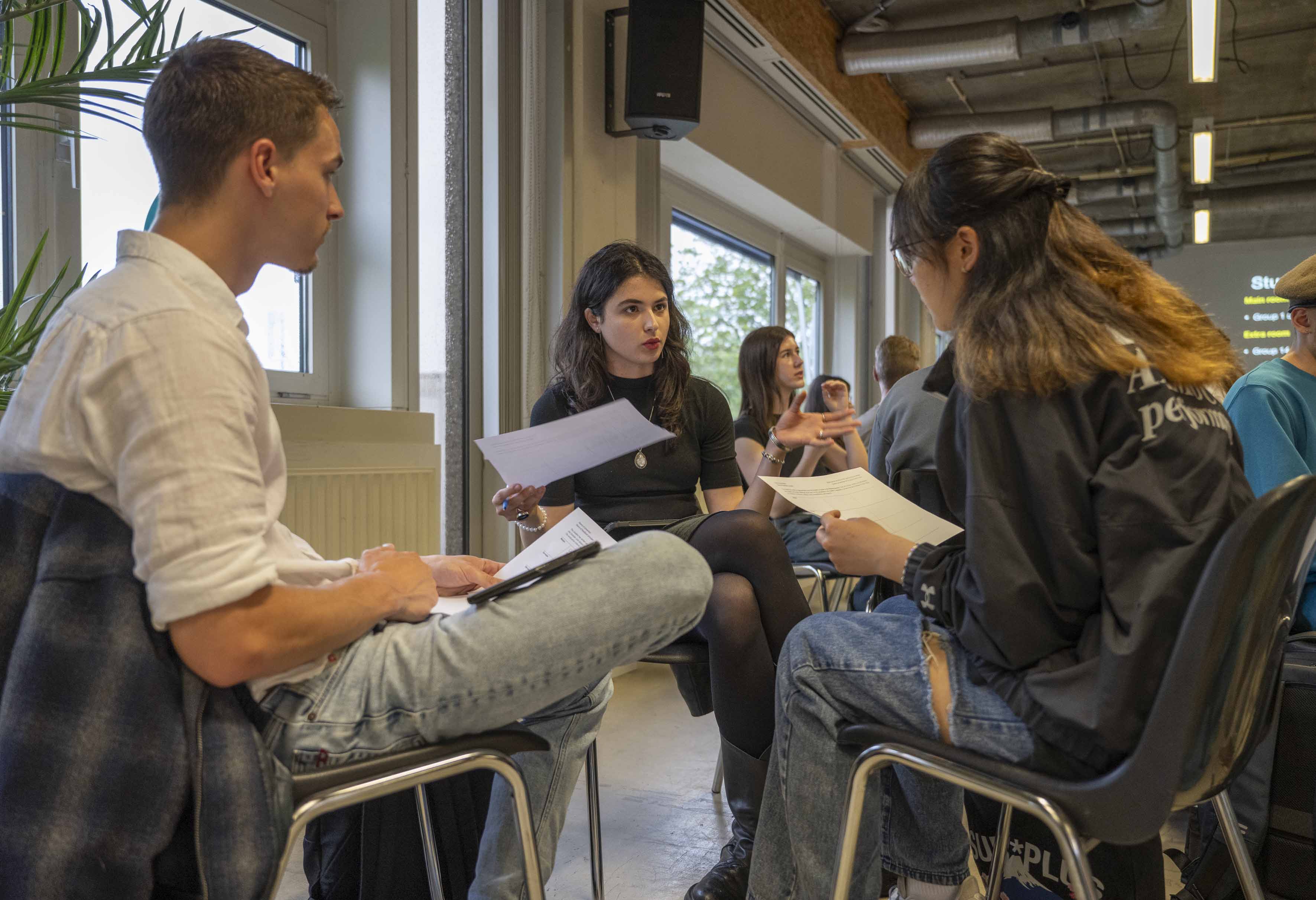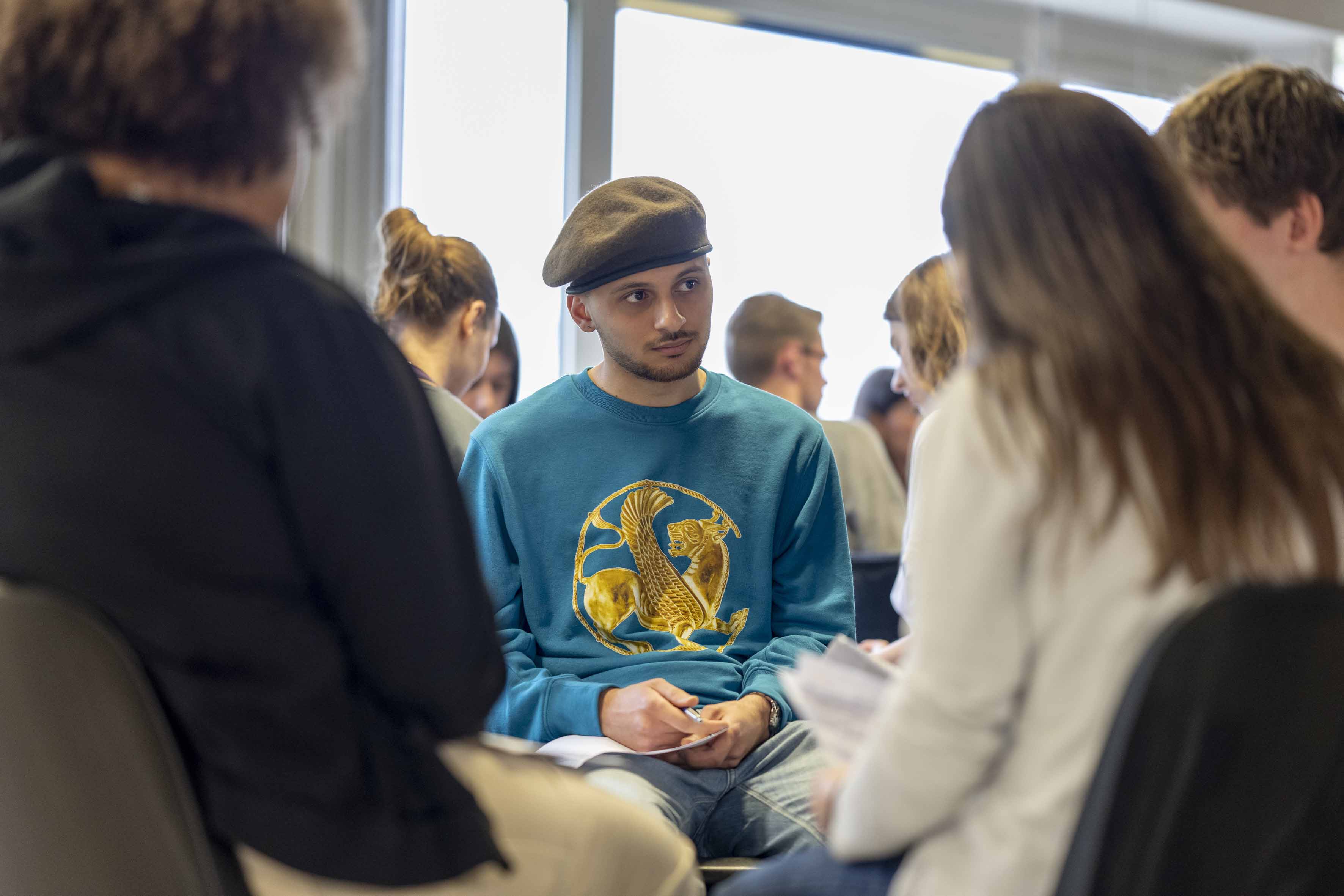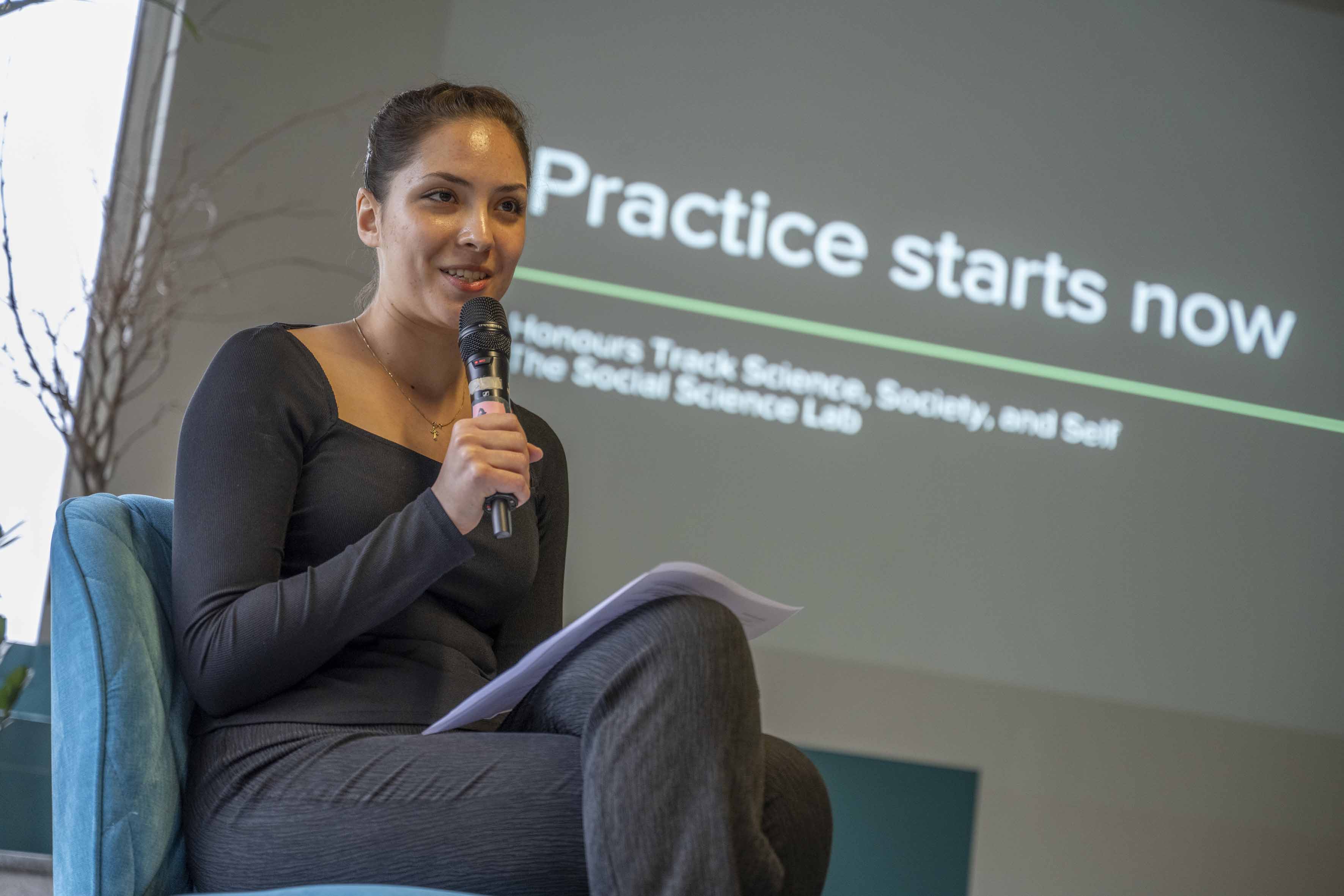
Bridging science, society and self: what honours education can look like
How can I align science, society and myself to address today’s major challenges? That’s what students of the Honours College track ‘Science, Society and Self’ aim to find out. How do their classes at honours differ from their regular education?
As the name of the Honours College track Science, Society and Self reveals, the students investigate the relationship between science, society and self – including how they relate to themselves and others. Altogether, they learn who they are and how they can effectively work with other academic disciplines to solve major challenges, such as climate change and polarisation.
The participants start their Honours College adventure with the Social Science Lab, which addresses societal themes through workshops, dialogues and reflective exercises. What do these meetings look like, and how do they differ from regular education? We visited two sessions to find out.
The students start each meeting with a stillness exercise
Colourful sketches
It’s late April when we get to witness our first session of the Social Science Lab. Title of today’s meeting: practicing reflexivity. The students start the meeting, like all others, with a stillness exercise. Deep breaths in, and deep breaths out. After that, the students share how they are doing in a check-in round.
Then, the reflecting can begin. Students are divided into different rooms to reflect on pre-assigned articles. They start with dissecting the term reflexivity. What does it mean? What are different views on it? Simply talking wouldn’t do justice to the originality of the ideas. Hence, they create posters. Students joyously share their perspectives, and creatively translate their ideas into colourful sketches.
Dialogue with deans
During the second half of this meeting, students ask dean Sarah de Rijcke and vice-dean Kristiaan van der Heijden how they deal with societal challenges at the university. This is meant as an opportunity for the students to learn about the complexity of decision-making and as a source for inspiration for their own reflexivity process.
‘Should universities keep a neutral stance or be more assertive in their moral beliefs?’, one of the students asks. ‘It’s not a question of either or’, De Rijcke answers. ‘I think the university could foster the conversation about ethical dilemmas. We could get in touch with students and reflect on why we made certain decisions.’
How interdisciplinary should social sciences be?
Discussing and debating
Near June, students reconvene again, this time in PLNT Leiden, for the final session of the course. Rather than a closing lecture or an examination, students put their newfound knowledge to the test in interactive discussions. What are the chances and challenges of social sciences today? The students had written essays on this question, and now spread out across the PLNT building to comment on the strengths and weaknesses of each other’s arguments.
After a short break, the discussion was taken to another level. In small groups, they debated on dilemmas that every social scientist gets confronted with. How objective can a social scientist really be? How interdisciplinary should social sciences be? Some groups argue that social sciences have become too interdisciplinary, while others see this as a strength. After each round, students reflect on what went well and what could’ve gone better, rating the quality of each other’s arguments.
How do students experience the course?
Student Jacqueline (International Relations and Organisations) appreciates the unconventional exercises in the honours course, such as the posters and debates. ‘There’s a lot of opportunity for discussion. We discuss with our peers, but also with our teachers and other professionals.’ A fellow student adds the high degree of interactivity makes the course ‘unique’.
'I learned the importance of putting yourself out there'
Another benefit of the course: its practicality and focus on applying science. Jacqueline: ‘We worked in think and do tanks to tackle a policy the problem that the university faces. We came up with a viable solution, and actually sent it to them to implement.’
Teaching assistant and former participant Alexia praises this spirit of entrepreneurship that the Honours College incites in students. She explains how this mentality helped her become a speaker at TEDxLeidenUniversity – and even got her her current job as TA. ‘I had many valuable interactions with academic professionals, which taught me so much. And I learned the importance of putting yourself out there. Want to get involved in an organisation? Just ask! Want to get a job? Apply!’
Are you interested in joining this interdisciplinary community of theory and practice? Get informed on the application details of the Honours College FSW.
Text: Lin Kokshoorn, Stan De Feyter & Michiel Knoester
Photos: Buro JP

